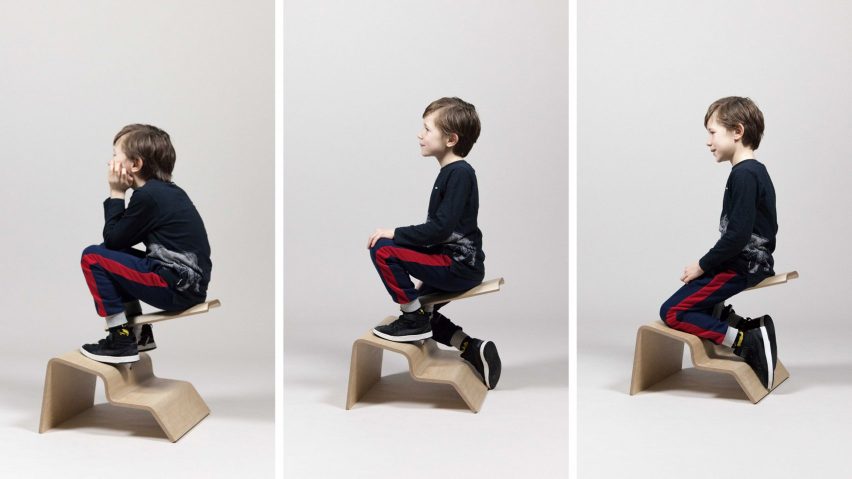
Studio Lancelot's Active Classroom seating encourages children to move
Dutch designer Studio Lancelot has created a series of school chairs that encourage children to frequently change seating positions in the classroom.
The furniture collection, called Active Classroom, comprises four stools designed for use in primary schools that each boast a different structure and supports multiple sitting positions.
These varied forms encourage the children to regularly change their postures throughout the day in a bid to increase their "muscular diversity" as well as their concentration levels.
The chairs have been shortlisted in the workplace design project category of Dezeen Awards 2020.
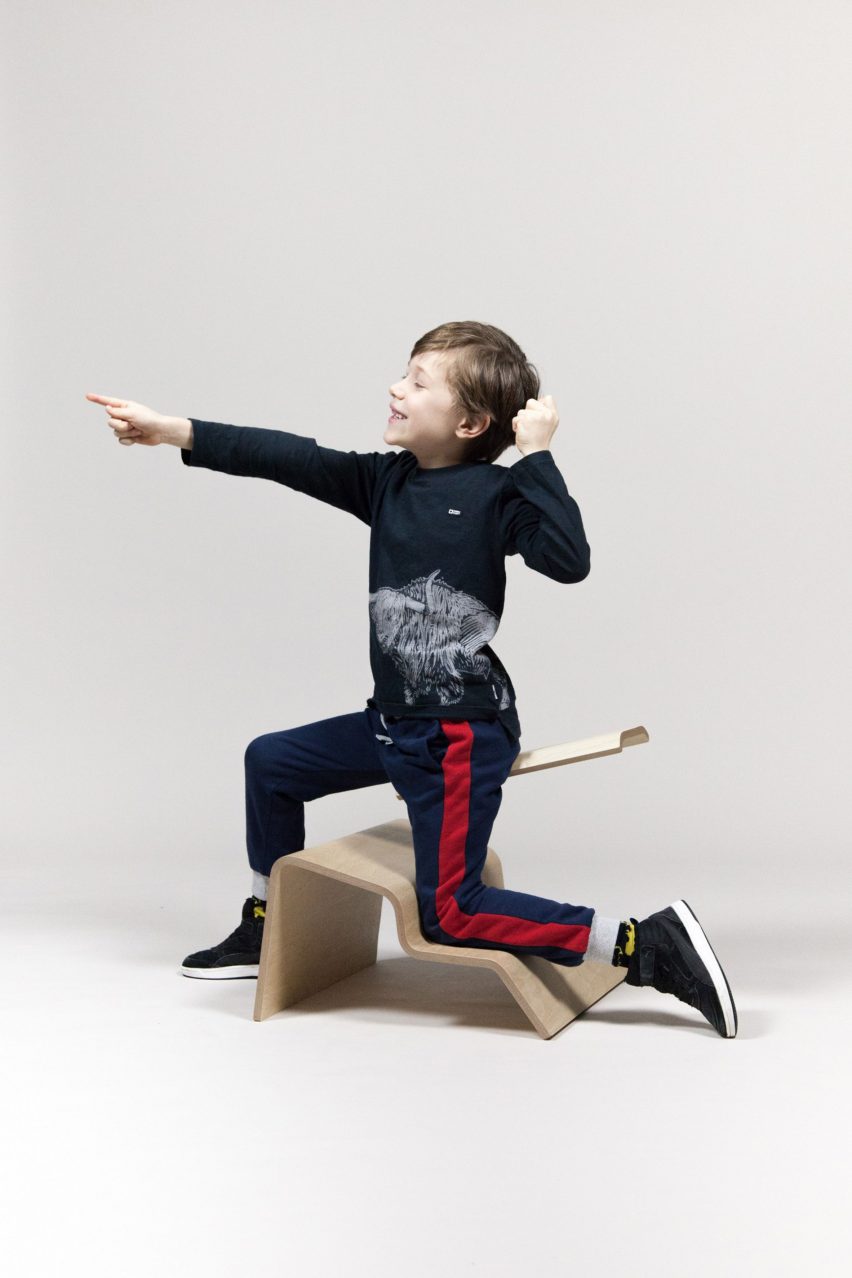
"Study after study shows that more time spent sitting in conventional chairs can cause serious health risks," explained Boris Lancelot, founder of Studio Lancelot.
"The deep habituation in chair sitting served as an inspiration to design healthy alternatives for sitting, starting with the youth."
"To support concentration, autonomous and active postures of the body are used to mobilise muscle groups to function actively and keep the body energised," he continued.
"Each stool is designed to incorporate a minimum of four different postures, as frequent variations in alternative sitting positions increases the activity of muscles that would otherwise be left unused in conventional chairs."
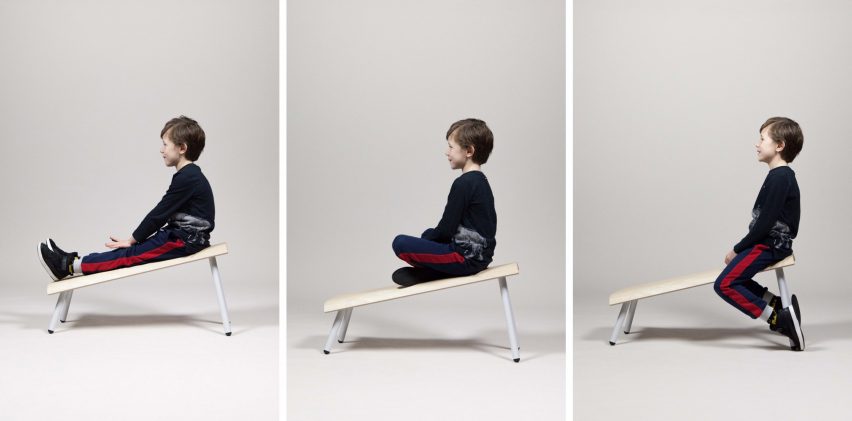
Each of the seating designs focuses on balance – using the stools requires an active effort that eventually fatigues certain muscles, encouraging natural posture changes that activate different muscles.
According to Lancelot, persuading people to adopt new seating habits isn't easy, but it is "crucial" to health and wellbeing.
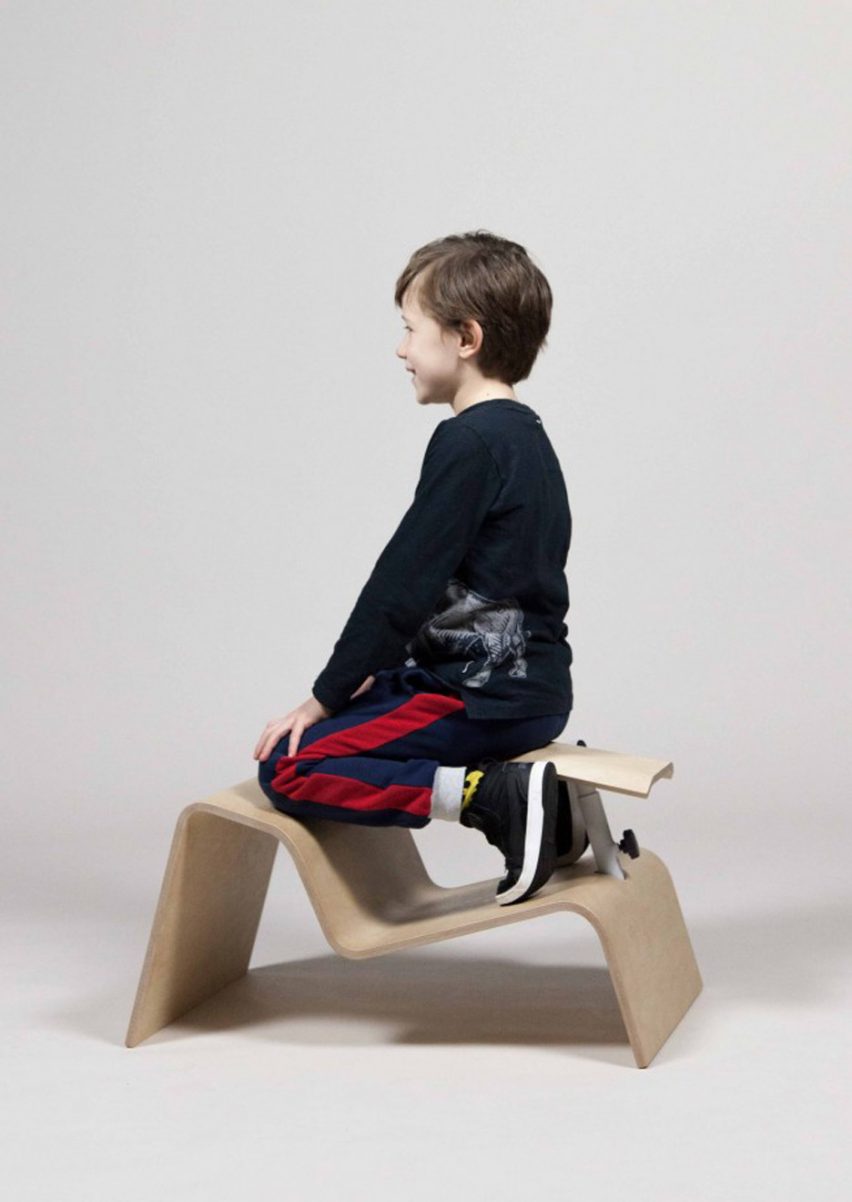
"Rethinking sitting is crucial, but changing sitting means transforming habitus," he explained. "This is a serious challenge given the inertia built into conventional chair sitting."
"The transition to a new sitting behaviour generates cultural and psychological discomfort as well as practical objections," the designer continued. "Western adult users find it difficult and even annoying to deviate from their lifelong built sitting behaviours."
"It is evident that design has a big impact on shaping the body's daily movement and therefore is of social importance in influencing the health and well-being of the user."
"Thus, it is particularly crucial for the design-discipline to rethink sitting and the use of chairs," he concluded.
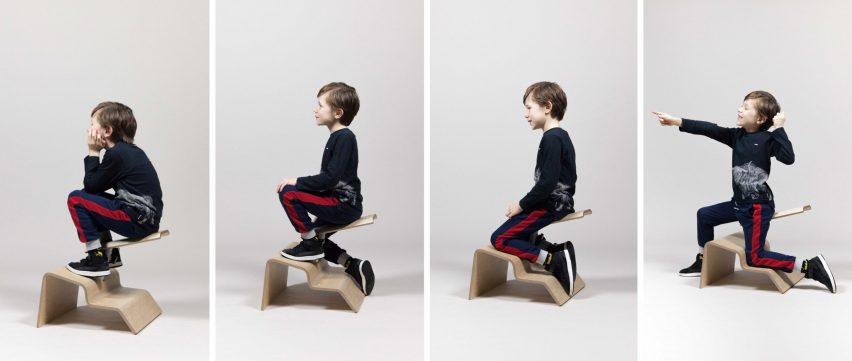
Lancelot is currently conducting research on how design can contribute to healthier classrooms, in collaboration with the Free University of Amsterdam & University of Groningen.
The designer and his team are carrying out their studies on third-grade primary school classes – an age range that Lancelot describes as "both mentally and physically flexible and most receptive to changes in habitual behaviour".
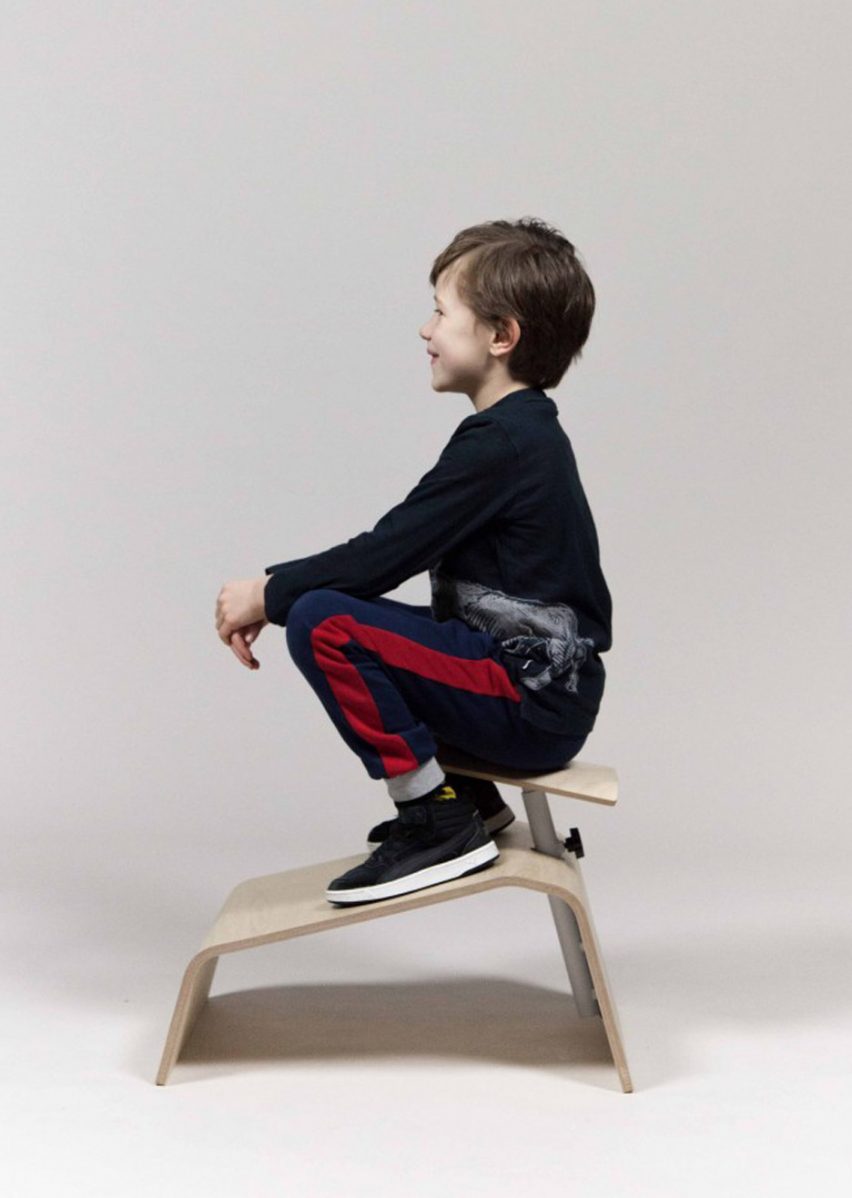
The Active Classroom collection was shortlisted for Dezeen Awards 2020 a series of embossed acoustic panels that take cues from Japanese design, created by interior-finishes company Woven Image.
Lancelot is not the only designer to rethink children's classroom seating in a bid to improve posture and concentration – Kingston School of Art graduate Masahiko Ito's chair design was created with the same aim.
The seat features a narrow, curved body that resembles the shape of a horse saddle, and encourages children to sit upright.